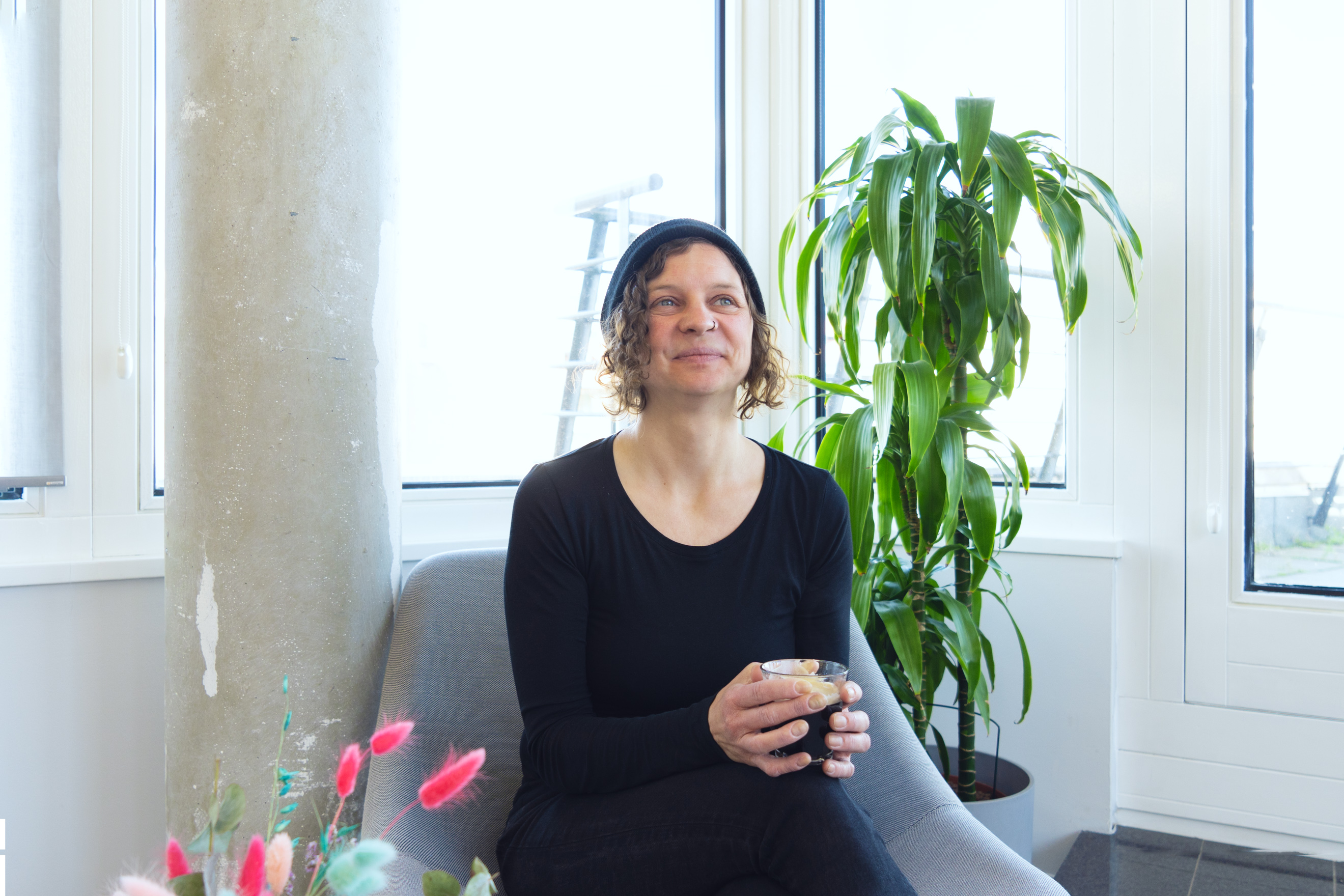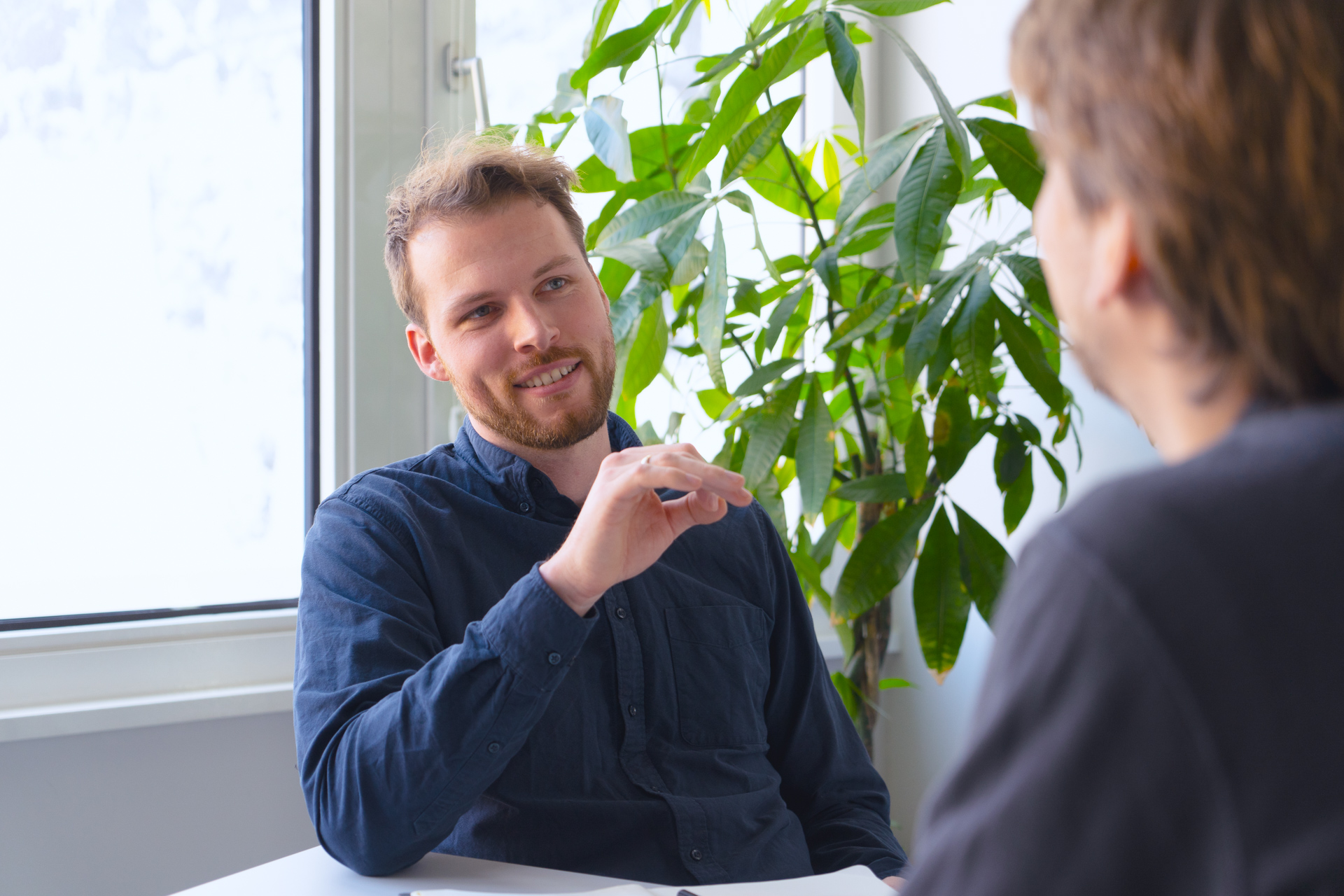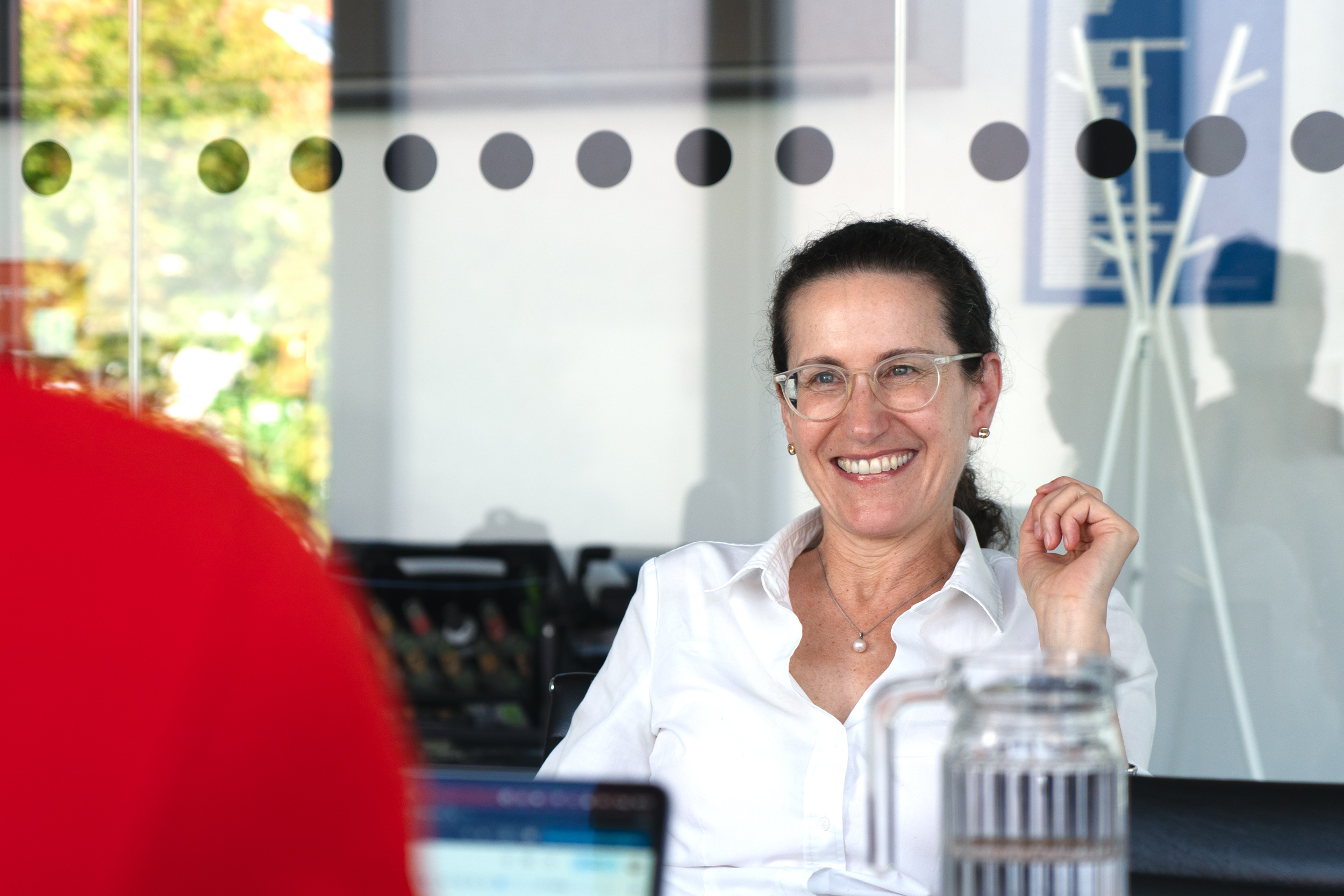

A cup of coffee with … Dirk, UX/UI Designer at DigitalService
In this interview, Dirk explains why transformation is also part of design. And this fan of South America shows how we tackle problems at DigitalService – including why it’s okay to not (yet) know something.
It’s a bit of a passion of mine to see transformation as part of my job. I think it’s simply inherent to our work, because we approach things differently from public administrations.
Before we talk about what you’re doing now, can you tell us what you wanted to be when you were a child?
For a long time, I wanted to be an architect. Then I liked the idea of being an air traffic controller. In the end, I became neither; life often takes us down a different path.
So you pivoted – in which direction?
I completed a bachelor’s degree in communication design at the Basel Academy of Art and Design and then freelanced for a long time. I only ever wanted to work for what I somewhat tongue-in-cheek refer to as “the good guys”: cultural, scientific, and non-governmental organizations that focused on matters I could relate to. In many cases, I wasn’t just involved in design tasks. For a classical music festival, for example, I was in charge of all the supporting aspects: branding, the website, and visual communication, as well as the entire project management function.
You wanted to “work for a good cause” – so you were already on a predetermined path to DigitalService?
Maybe, yes. First I did an urban future master’s at Potsdam University of Applied Sciences, which covered futurology but also complexity and transformation.
This is sounding more and more like DigitalService.
During my master’s, I heard about the Tech4Germany fellowship program through another student (who would later become a work colleague). I then took part in this during my studies and worked on a project with the Federal Central Tax Office. I quickly realized that this was exactly what I wanted to do. I then completed my final courses, wrote my master’s thesis and handed it in. I started at DigitalService in October 2022.
Why did you choose our organization?
The work culture at Tech4Germany and the problems we tackled struck me as both exciting and relevant. And I found it refreshing to see how confident and at ease we were at Tech4Germany when approaching project partners and dealing with challenges. This extends to DigitalService, which has more or less evolved from Tech4Germany: we do things differently here and try to convince public administrations to tackle digitalization with us in a contemporary way – i.e. to start by diagnosing the problem and to bring a user-centric approach to public administration.
When we hear the name Tech4Germany, a design function doesn’t immediately spring to mind. Tell us, what is your role at DigitalService?
Officially, I’m a UX/UI designer (editor’s note: UX stands for user experience and UI for user interface). And yes, this role can be interpreted in many different ways. Certainly, as designers we develop the entire user journey for a project, for example. This also involves creating conventional interfaces. So we’re responsible for everything to do with the user experience. In fact, I really see myself more as a service designer than a UX/UI designer.
It’s simply a broader part of our responsibilities: for product tasks, for example, we as designers look at the roadmap together with the product managers – what are the next things we need to develop together? During discovery, we also consider what problem we need to solve, what’s behind it. To do this, we conduct research, talk to our users and project partners, and create prototypes together with our developers. These are tested, iterated, and further improved until our developers work with them and implement the solutions.
And it’s a bit of a passion of mine to see transformation as part of my job. I think it’s simply inherent to our work, because we approach things differently from public administrations. We want to bring these new approaches into public administration for our project partners.
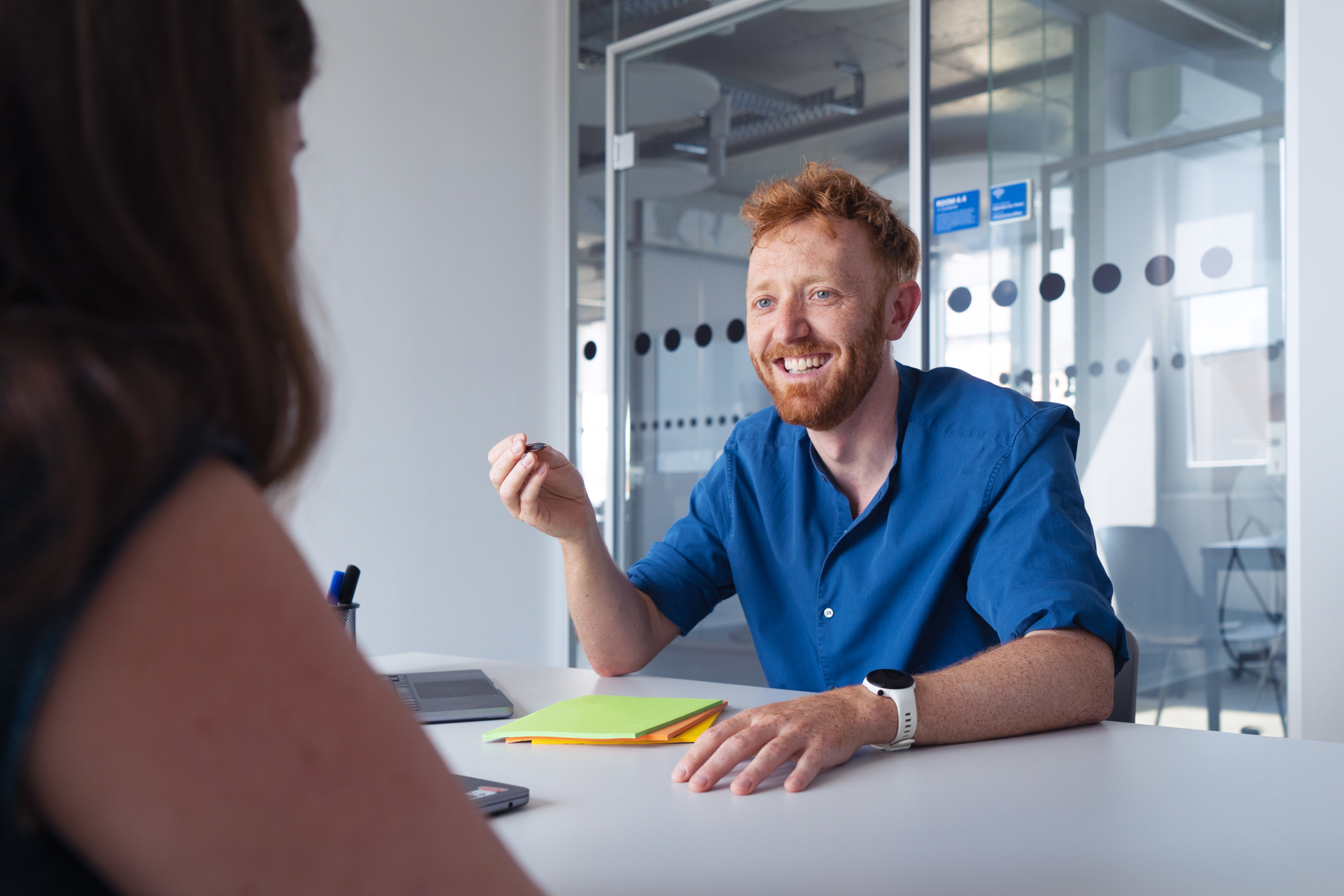
What project are you currently working on?
I’ve been involved in a major project right from the start – NeuRIS. We want to develop a new legal information system for the entire legal apparatus in Germany. I don’t think I’ve ever worked on a lengthier or more complex project in my life.
In this long-term NeuRIS project, is there something you’ve been particularly proud of lately?
We had a somewhat difficult phase as a team when we were not satisfied with how things were going and the project was challenging. We managed to maneuver our way out of this under our own steam and have been working like a really well-oiled machine in recent months. As a result, we’ve achieved more than expected in several sprints.
How would you describe your job right now to a five-year-old?
When people ask me, I always say: we are finally making it easier to interact with the government online.
Do you see DigitalService as a learning organization?
I think in the way we work together and organize ourselves, yes. If things are not going smoothly or something isn’t working, one of us will make a suggestion. For example: how about we tweak our working model – initially based on Scrum – and try out new methods? One solution was that we split into two sub-teams within the team. That’s how I understand learning within our team – trying things out, seeing do they work, and tweaking them again.
What have you learned most here in the past two years?
This very practical, agile approach. We have to define the steps and tasks ourselves based on what may possibly come our way or the work that lies ahead of us. It can be difficult dealing with this kind of ambiguity. I’ve gotten better and better at it over the past two years.
What would you have preferred to know beforehand? What did you not expect
I went through a phase where I struggled to get an overview and wasn’t sure what the next key steps were. What I learned from this is that you should always speak up as soon as possible. Say that you’re lost and ask for help. I then realized that I wasn’t the only one. We were able to talk about it, help each other, and work together to create clarity. I think it would have been beneficial to have understood that earlier.
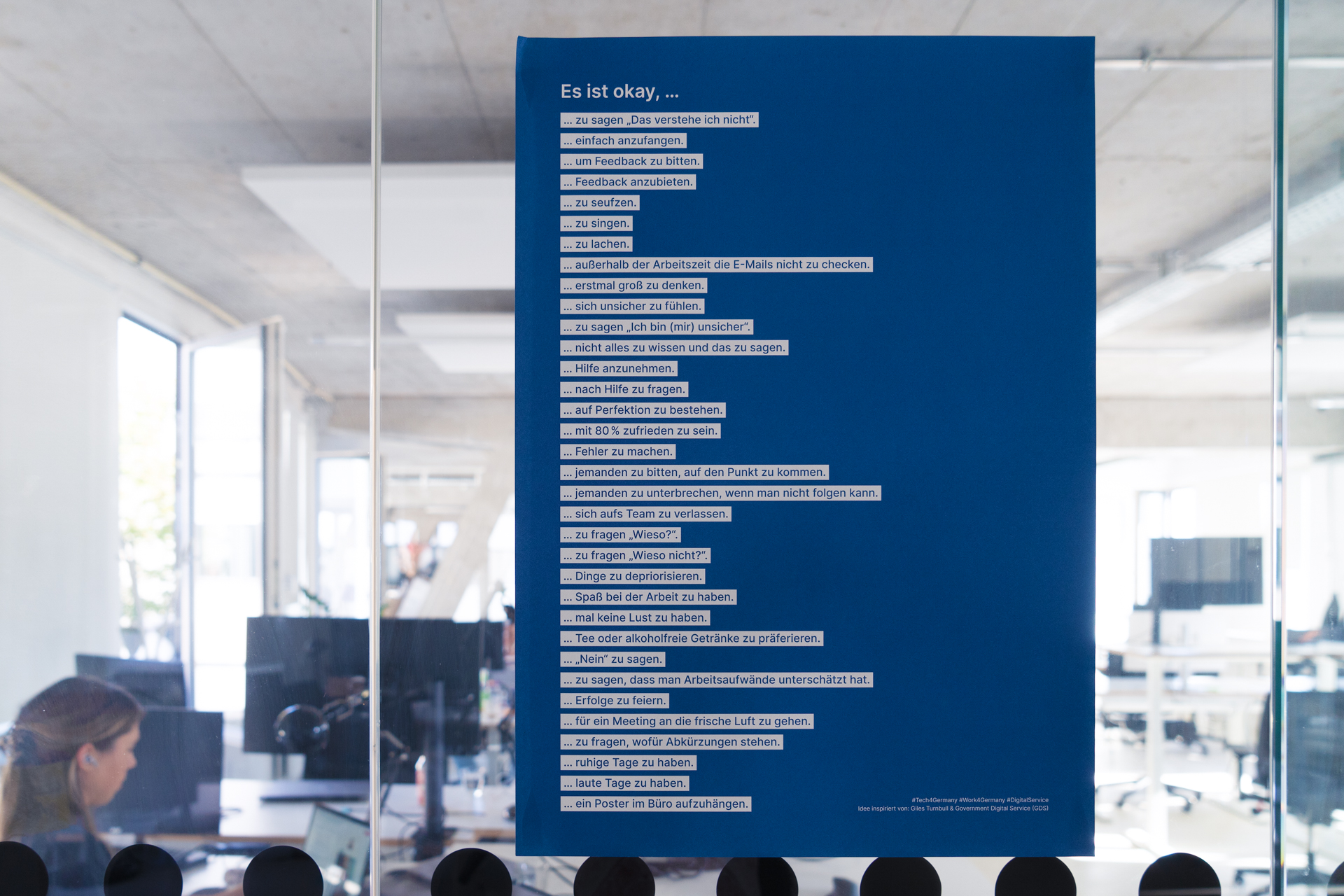
That’s a nice transition: what makes a good corporate culture for you?
We have a poster with the heading “It’s okay” in our office, listing the things that we should consider normal and acceptable. For example, I feel a good corporate culture means that people understand that you will need to ask for help and that colleagues will help you – that you can rely on each other. Fun and even a bit of silliness at work are important for me. Although I haven’t worked in that many companies, I feel like DigitalService is a place truly built with its employees in mind as well.
What are you hoping to achieve? What else motivates you?
As simple as it may sound, I’m motivated by DigitalService’s mission. I want to leave the world a better place than I found it. And I want to do my bit to help solve problems. I’m motivated to accelerate digital transformation in the right way, and by that I mean with a focus on the user. And my team motivates me – these are fun people to work with.
We can see that. Finally, you also head up the “Re-Present: Yourself!” group at DigitalService. What is that?
It’s what’s known as a community of practice and there are several of these here at DigitalService. The idea behind ours is to give people who are frequently on stage or at events a chance to hone their presentation techniques. You can really only learn this by doing. So we wanted a space where we could come together, practice public speaking in a constructive environment, and get positive reinforcement.
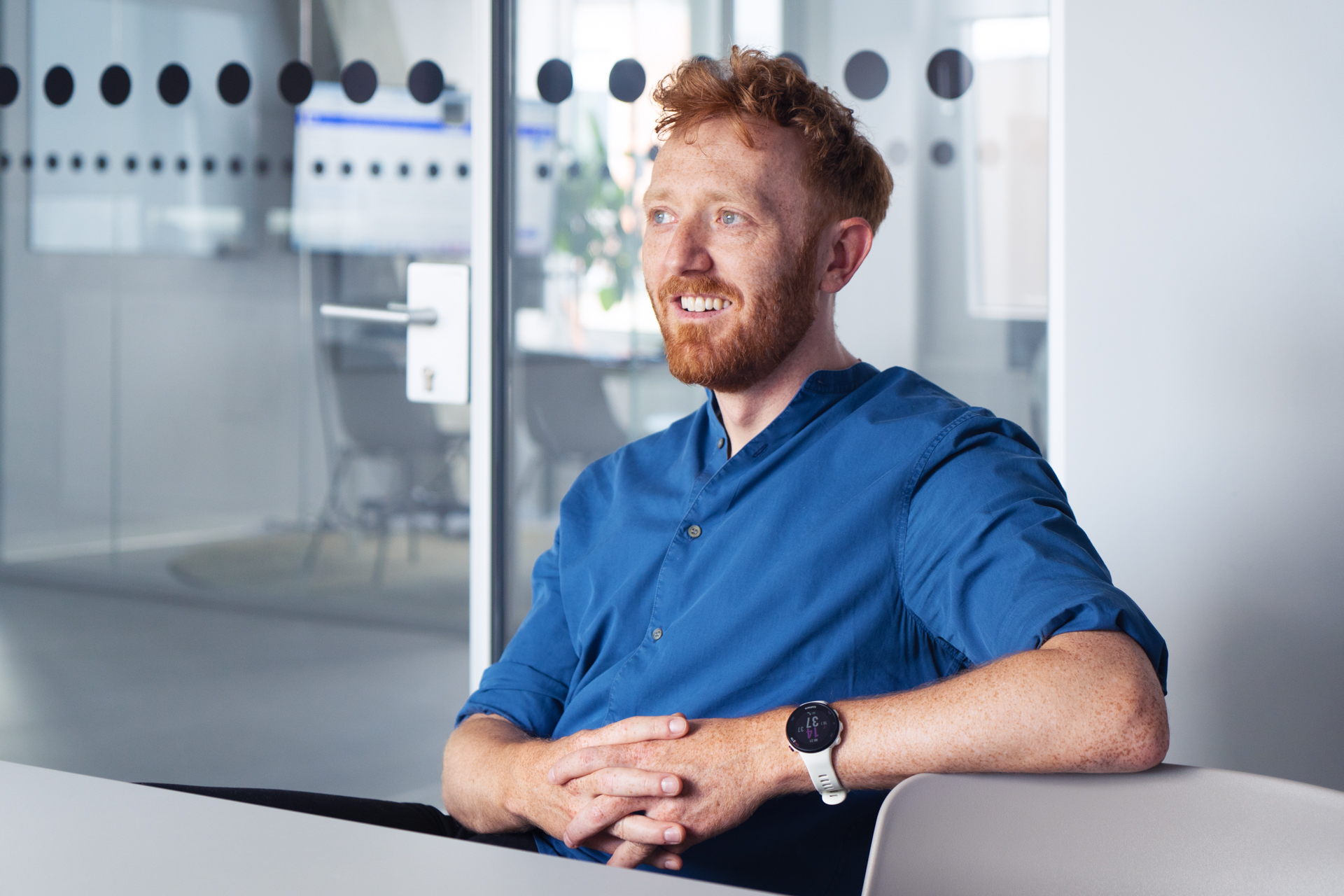
Back to your role again: what do you consider to be good design?
I have two different perspectives of this – from the point of view of communication design and UX/UI design. At DigitalService, I’m primarily interested in the latter. I think it’s important that design works. It works if users understand it, if it’s intuitive and simple. But only users can tell us what is intuitively understood. And that’s why we need research and feedback and then have to iterate further.
What advice would you give anyone applying to work here? What kind of person should they be?
Essentially, you have to want to make public administration and the state better. You should be curious and also have a certain degree of resilience. The topics may be somewhat unexciting at times and it’s not always straightforward dealing with administrations. You then need to be able to push through – that’s what we’re here for as a team. And I think it’s nice when people bring some sense of fun to the job.
And away from work: what do you hope to do some day?
I’d like to take a sabbatical and travel the world. I definitely plan to spend a few months in South America.
Okay then, the obligatory final question: if DigitalService were an animal, what would it be? And why?
I think we’re a bird of paradise in the administrative context. We are the digitalization unit that approaches things in a different way – perhaps a bit bolder and more vibrant. In fact, I think we could do with leaning even further into the nature of a bird of paradise.
Read more on the topic

